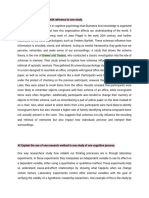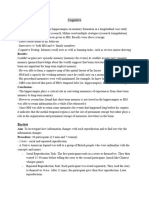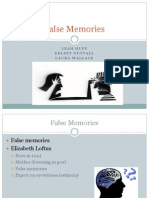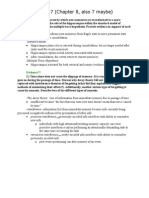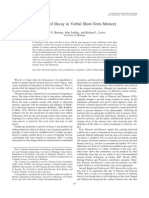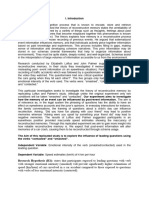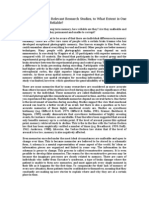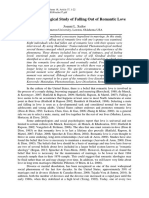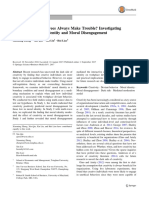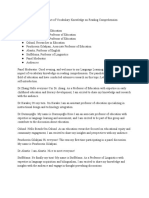0% found this document useful (0 votes)
34 views11 pagesReliability of Memory
The document explores the reliability of memory, emphasizing its reconstructive nature and how cognitive processes influence memory recall. It discusses a study by Loftus and Palmer (1974) that demonstrates how leading questions can alter participants' recollections of an event, indicating that memory can be distorted based on the wording of questions. The findings suggest that memory is not a perfect record of events but is influenced by cognitive schemas and the way information is processed.
Uploaded by
Antonia GómezCopyright
© © All Rights Reserved
We take content rights seriously. If you suspect this is your content, claim it here.
Available Formats
Download as PDF, TXT or read online on Scribd
0% found this document useful (0 votes)
34 views11 pagesReliability of Memory
The document explores the reliability of memory, emphasizing its reconstructive nature and how cognitive processes influence memory recall. It discusses a study by Loftus and Palmer (1974) that demonstrates how leading questions can alter participants' recollections of an event, indicating that memory can be distorted based on the wording of questions. The findings suggest that memory is not a perfect record of events but is influenced by cognitive schemas and the way information is processed.
Uploaded by
Antonia GómezCopyright
© © All Rights Reserved
We take content rights seriously. If you suspect this is your content, claim it here.
Available Formats
Download as PDF, TXT or read online on Scribd
/ 11











